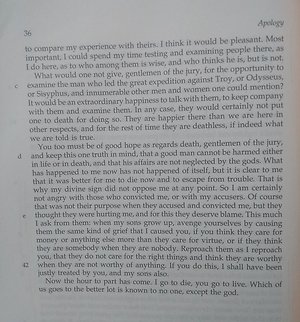Apologia
From: The Tyranny of "Mental Health" published on SPIKED online 13th July 2017
www.spiked-online.comCLICK HERE
The happiness demanded by the so-called radicals of mental-health campaigns buys into the capitalist and neoliberal imperative of the well-adjusted, adapted individual, alienated by the modern metaphysics of the self. Our modern state of being, of becoming increasingly unhappy and distressed (not mentally ill), is no doubt created by economic conditions. But it is also a result of the pathological inability to enjoy the myriad satisfactions offered to purchase, or life statuses we are encouraged and tempted to acquire in contemporary society. The psychoanalyst Jacques Lacan was very cognisant of the fact that the modern demand for happiness, and the existence of the happiness/mental-health industry, implies the ultimately unsatisfying nature of customer satisfaction. And he was also aware of the symbolic underpinnings of demand itself, which implies a surplus of excess. That is, happiness is created and articulated through language. As such, it is promised everywhere, but the demand for it overshoots itself, precisely because it is not something that can be obtained under the terms of neoliberal capitalism. But the many marketing and ideological ploys of capitalism would have you think otherwise.
So the next time there is a mental-health campaign we would be prudent to recall and heed these sensible words of Lacan:
‘The aspiration of happiness will always imply a place where miracles happen, a promise, a mirage of original genius or an opening up of freedom, or if we caricature it, the possession of all women for a man, and of an ideal man for a woman. To make oneself the guarantor of the possibility that a subject will in some way be able to find happiness, even in psychoanalysis is a form of fraud.’
------------------------------------------------------------------------------------------------------
From the preface of "Testimony of Experience: Docta Ignorantia and the Philadelphia Association Communities". (PCCS Books, Ltd).
Towards an understanding and way of ‘seeing’, perhaps more akin to previous times and less common contexts, which is completely incongruous, and incompatible to a dominant western scientistic modus operandi, is perilous, daunting, possibly frustrating; however it is the great leveller. As the philosopher Levinas discussed (Levinas, 1998), there is the said and the saying, and albeit, we may have become expert in the said, or so we think, and really believe in the transportation of signifiers being passed over from one person to another as being it, to the detriment of the almost mystical saying. This convenient, but violent manoeuvre, the conatus essendi, this narcissistic effort and urgency towards being, contrary to what is being defended here, refuses the face of the Other in the myriad of contexts in which we find ourselves. This is especially pertinent in the realm of mental distress, for where there are people in power, and people who want power, there cannot be anything other than the proliferation of the conatus essendi, misery, and misunderstanding. It is no wonder people get lost, slowly wither, or leave the ‘system’, opt out, and try to make their own way or find others (or not) to traverse life’s journey or come to the realisation that there is more to life than the said, or what is there or who is before us.
The recent publication of the new and improved Diagnostic and Statistical Manual for Mental Disorders (DSM-V, 2013) is a case in point of misunderstanding. Although it is a serious matter; in no way do I want to be interpreted as flippant, the violence done to the diversity of experience, under the guise of the rhetoric of the DSM, purely by the words that are written in it, read by people, and transported from one who is supposed to know, to another, in the guise of helping is truly astounding. Moreover, when the layman (or any man or woman) has only a DSM-esque taxonomical discourse to alight his way, it is no wonder that many get shipwrecked; however, despite what some people say, there are other ways.
This book attempts to show some people who have made their own way (sometimes with the help of others) and are making their way on routes and paths that are becoming less and less available to others as a result of the state’s and related institutions’ definitions and management of mental distress ; slowly and surly the discourse of the capitalist, the bureaucrat, the call to ‘accountability’, of certainty, of predictability, are all shoring up the surplus that such divergent path-makers stir up and which such discourses cannot really, ever truly account for account for.
This book, and it is paramount for me to express this, is not a presentation in the sense of a ‘here is how you do it’. Perhaps Wittgenstein provides a good example of my sentiments. In the Tractatus-Logico-Philosophicus he writes:
‘6.52: We feel that even when all possible scientific questions have been answered, the problems of life remain completely untouched. Of course there are then no questions left, and this itself is the answer.
6.521: The solution of the problem of life is seen in the vanishing of the problem.
(Is this not the reason why those who have found after a long period of doubt that the sense of life became clear to them have been unable to say what constituted that sense?)
6.522: There are things that cannot be put into words. They make themselves manifest. They are what is mystical.’ (Wittgenstein, 1961, p.73).
Indeed, taking this seriously, perhaps Wittgenstein’s wisdom reflects the importance of the title of this book; that testimony and the Docta Ignorantia (wise unknowing) are beyond ideals of representation; they are a call to the ethical, to justice, to freedom. The dominant western psycho-scientistic research and philosophical outlooks proceed on the basis of the (desire) for the understanding of beings or entities; of intelligibility. But as Levinas argues, such drive for intelligibility is questionable:
‘Consequently truth is a progression, and is exposed in several moments, remaining problematical in each. Yet the question about the question is more radical still. Why does research take the form as a question? How is it that the “what”, already steeped in being so as to open it up the more, becomes a demand and a prayer, a special language inserting into “communication” of the given an appeal for help, for aid addressed to another?’ (Levinas, 1998, p.24).
So the question is, why does there have to be this incessant call for the intelligible, for the question mark put in the service of research, in the context of mental distress? Of course I am not demeaning mental distress or romanticising misery; I am championing mental distress as a facet of life that should not be swept under the carpet or be got rid of, as mental distress as an important facet of living. The vicissitudes of life are multifarious and infinitely changeable. My point is that all is life; happiness, suffering and everything in between; all is needed, it is all part of (what should be expected) experience. Language or discourse is not a neutral, benign, or always helpful aid; we are all beings suffused with the cultural signifiers of our time. We have to question the question before we end up tumbling down a rabbit hole where there might be no end to the riddles we encounter.
One can read this book throughout as a whole, or one could read the individual chapters as standalone pieces. Readers without specialist philosophical knowledge can omit chapters 2, 3, or 19 if they wish. By reading the interview chapters alone (chapters 5-18) along with the analysis in chapter 20, one can gain a more than adequate insight into the experiences I wish to convey. It is the testimony that is contained within this book which I hope the reader will be open to; not as a grasping after fact, but of letting it change and work on them. The testimony, from my own hand (and from those that have inspired me), and especially from the people I interviewed who have lived in the Philadelphia Association communities, will hopefully open up a poetic dwelling space, where the constraints of certainty are loosened and the realm of the Docta Ignorantia is honoured. Life is not a technique and life is not there to be ‘known’; young children know this feeling better than adults I believe; this cannot be taught in a lecture or power point presentation however clever we think we are. I think there has to be more room in life for poetising, even in the realm of mental distress and psychotherapeutic work. If such poetising is cultured out, as it seems to be today, we will be witnesses to the refusal of testimony in its true sense; to be witness to the vicissitudes of life, the Docta Ignorantia or wise unknowing. Testimony is not towards a ‘truth’ but rather towards a truthfulness of living life that can never be fully spoken; this is wonderfulness of poetry and of life.
Bruce Scott
Jedburgh, May, 2013
------------------------------------------------------------------------------------------
Coda from "Testimony of Experience: Docta Ignorantia and the Philadelphia Association Communities". (PCCS Books, Ltd).
Coda
Over and above a conclusion, a final word necessitates what; truth, wisdom, or closure? This is not my goal and has not been my goal in writing this book. Hadot (2002) describes how the goal of the ancient Greeks was not to discern a final truth, or the production of ultimate knowledge, but to be a practice in helping to form the individual; a praxis which is un-ending, a praxis that has no definite curriculum, or can be taught in the modern academic sense. It was also a practice to help somebody judge and criticise effectively. Therefore, the Greeks were not against discursive reasoning, as was the author of De Docta Ignorantia, Nicolas Cusanus; discursive reasoning is essential to get us to the place where we can discern what we can know and what we cannot know. I am in accord with such an idea. Therefore, I hope the reader will not confuse what I have written about with the notion that thinking, cogitation, or reasoning is useless. To become enamoured by such an idea, would set oneself up as being accused of advocating ‘anything goes’ or lazy thinking, especially within the psychotherapeutic context. I hope the reader will digest or re-read the testimony of ex-residents of the Philadelphia Association communities: but do not judge their testimony too harshly, or put a full-stop to end any unfinished business you think needs a closure, or pose any unnecessary questions. But, to end, a point for meditation:
‘The slaves of developed industrial civilization are sublimated slaves, but they are slaves, for slavery is determined neither by obedience not by hardness of labour but by the status of being a mere instrument and the reduction of man to a thing.’ (Francois Perroux, La Coexistence pacifique, 1958, p.600).
And some appropriate last words from Nicolas Cusanus himself:
‘.....but since the natural desire in us for knowledge is not without a purpose, its immediate object is our own ignorance. Nothing could be more beneficial for even the most zealous searcher for knowledge than his being in fact most learned in that very ignorance which is peculiarly his own; and the better a man will have known his own ignorance, the greater his learning will be. It is in bearing this in mind that I have undertaken the task of writing a few words on learned ignorance.’ (Nicolas Cusanus, Of Learned Ignorance, 2007, p.8).
-------------------------------------------------------------------------------------------
Excerpts from The Myth of Toxic Masculinity published on SPIKED online 11th January 2018
www.spiked-online.comCLICK HERE
In these strange political times, it’s very fashionable to trash men. ‘Toxic masculinity’ has become the prefabricated phrase of choice bolted on to every problem involving men. Such lazy use of language would have George Orwell turning in his grave. The toxic masculinity argument demands that men need to be fixed, re-educated and reprogrammed. This baseless assumption, founded on nonsense psychologism, is deeply insulting. What would happen if another identity group were told that they were flawed and lacking, and must be re-educated? We’re in danger of returning to the days when pathologising certain groups was regarded as normal – when homosexuality was treated and accepted as a mental illness, of women were labelled hysterics.
This simplification and stereotyping is a key factor of identity politics, especially within the more authoritarian left, which has a propensity to diagnose how other groups act as oppressors. (The classic example being that white males are supposedly racist and exude damaging toxic masculinity.) This becomes problematic when people who are supposedly being protected from such oppression don’t agree with the ideology. For example, not all women, trans or gay people want to be dictated to or spoken for. This reluctance to accept the popular idea of toxic masculinity is often met with accusations of being in denial or suffering from internalised misogyny. Rather than celebrating difference, the psychologism of toxic masculinity alienates the individual from their own subjectivity, negating his or her own ability to write their own narrative.
As Michel Foucault and Franco ‘Bifo’ Berardi outlined, in highly controlling societies the perfect prison is one in which individuals police themselves. Toxic masculinity, and the reification of masculinity, has created a panoptic psychological regime to guard against what is considered to be Orwellian wrongthink. The norm is supporting Safe Spaces, PC culture and identity politics, and any criticism is immediately condemned as being caused by toxic masculinity. The psychoanalyst Roland Gori argues that people crave this ‘security’ of the norm, as it relieves them from the dizzying ‘groundlessness’ of heterogeneousness which resides outside the norm. In order to maintain our freedom and liberty, we have to reject the idea that security is found in conformity.
Let’s be honest. Pretty much the only identity group that it is considered acceptable to pathologise is men. Like the witch-hunts of old, men must admit to the sin of toxic masculinity, and be purged, or else face persecution. It is time to call out the narrative of toxic masculinity for what it really is – a toxic idea.


